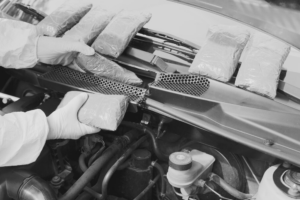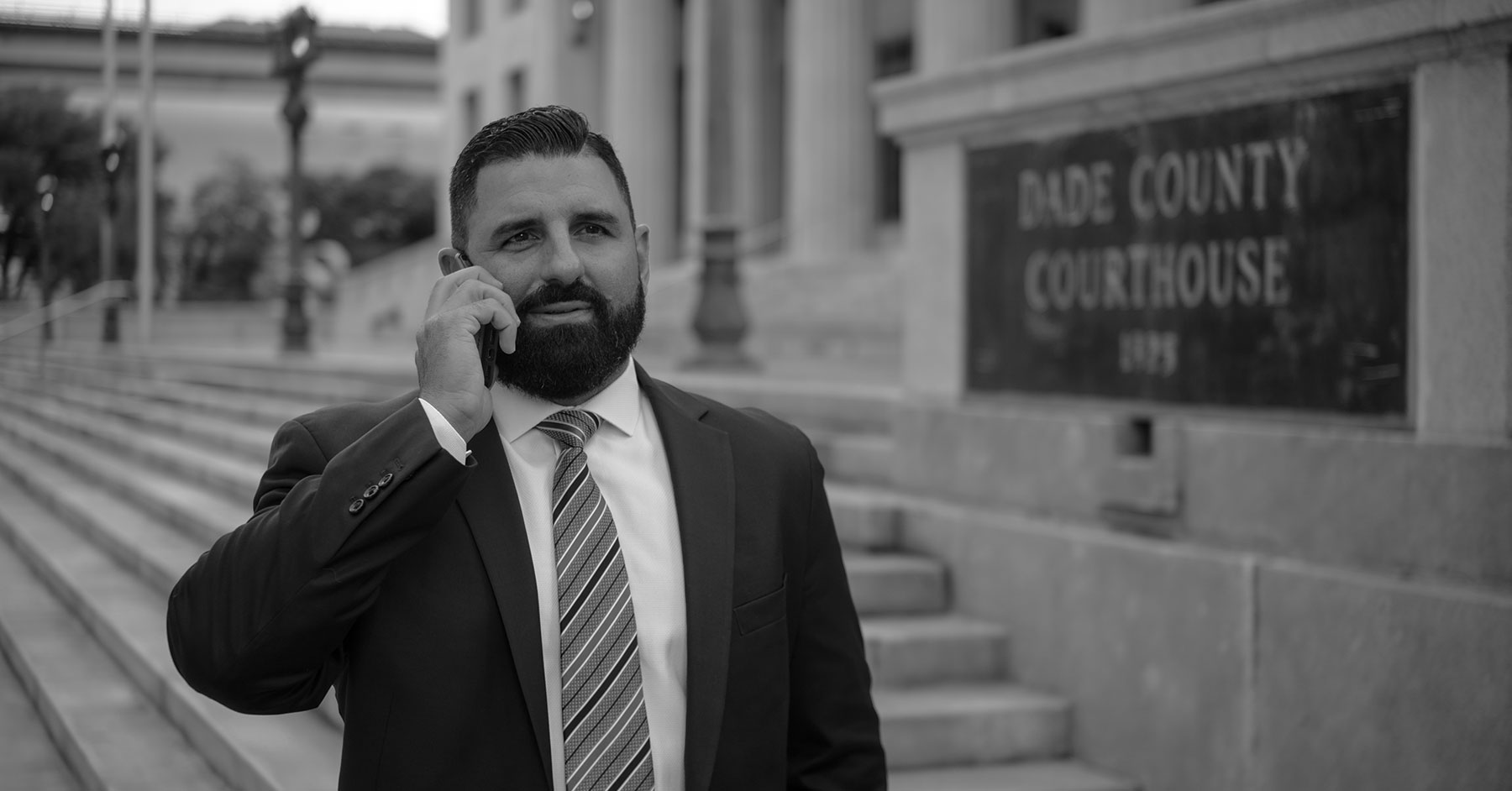Miami Lakes Drug Trafficking Defense Attorney
A Drug Trafficking Defense Attorney Protecting Your Rights in Florida

If you’ve been charged with drug trafficking, you need serious, experienced legal representation from a criminal defense lawyer who understands the criminal justice system in Miami and is skilled in defending such charges.
The burden of proof for the prosecution is high and the evidence-gathering requirements are stringent. Often, a legitimate defense can mitigate a defendant’s consequences for the future.
Drug trafficking attorney, Nayib Hassan, can help you navigate these serious criminal charges and provide the best possible chance of clearing your name.
Contact us today at (305) 403-7323 or reach out through our online platform to schedule a consultation and discuss your legal options. Trust in our experience and advocacy to defend your rights vigorously.
What is considered drug trafficking in Florida?
Florida has poured countless resources into clearing up its image as a 1980s drug trafficking hub. The laws here are some of the harshest in the country.
But what constitutes drug trafficking in Florida?
Drug trafficking charges target not only multinational drug cartels but anyone who is found with certain quantities of illicit drugs on them. According to Section 893.135 of the Florida Statutes, even small amounts of Schedule I drugs like cocaine or heroin can lead to a drug trafficking charge.
In fact, trafficking differs from possession, sale, or delivery of drugs only in the amounts of the particular drugs found. Because of the larger amounts of illicit substances involved in trafficking cases, it is classed as a first-degree felony and the accompanying penalties are more severe than for sale or delivery.
What is the mandatory minimum sentencing for drug trafficking in Florida?
Trafficking in any illicit substance is a first-degree felony in Florida, which comes with penalties of up to 30 years in prison.
Because of the mandatory minimum prison sentences under Florida law, a judge has limited powers of discretion and must sentence a person convicted of drug trafficking to the specified prison term rather than probation or county jail time.
Mandatory minimum sentences for drug trafficking in Florida range from 3 to 25 years. Unless waived by the prosecutor (which is rare in drug trafficking cases), a sentence of this length will, therefore, almost certainly be imposed for convicted traffickers.
What are the penalties for drug trafficking in Florida?
Beyond the mandatory minimums, a drug trafficking conviction in Miami can result in serious maximum prison sentences and fines. These penalties vary according to the types and quantities of drugs involved.
Before considering the types of penalties imposed for trafficking various types of drugs, bear in mind that aggravating factors may result in higher fines and longer prison sentences for convicted felons.
These aggravating factors may include any of the following:
- Prior drug conviction(s)
- The possession or use of a firearm during the commission of the crime
- A death resulting from drug trafficking activities
- Membership of an organized criminal gang or enterprise
Here are some standard sample penalties associated with commonly trafficked substances in Florida:
Penalties for marijuana trafficking
Anyone convicted of trafficking in marijuana faces a first-degree felony (up to 30 years in state prison), with the following penalties usually applied based on the amounts involved:
- 25 to 2,000 pounds (or more than 300 plants): Three-year mandatory minimum prison sentence and a $25,000 fine.
- 2,000 to 10,000 pounds (or more than 2,000 plants): Seven-year mandatory minimum prison sentence and a $50,000 fine.
- 10,000 or more pounds (or more than 10,000 plants): 15-year mandatory minimum prison sentence and a $250,000 fine.
Penalties for cocaine trafficking
Anyone convicted of trafficking in cocaine faces a first-degree felony (up to 30 years in state prison), with the following penalties usually applied based on the amounts involved:
- 28 grams to 200 grams: Three-year mandatory minimum prison sentence and a $50,000 fine.
- 200 to 400 grams: Seven-year mandatory minimum prison sentence and a $100,000 fine.
- 400 grams to 1.5 kilograms: 15-year mandatory minimum prison sentence and a $250,000 fine.
Penalties for heroin trafficking
Anyone convicted of trafficking in heroin faces a first-degree felony (up to 30 years in state prison), with the following penalties usually applied based on the amounts involved:
- 4 to 14 grams: Three-year mandatory minimum prison sentence and a $50,000 fine.
- 14 to 28 grams: 15-year mandatory minimum prison sentence and a $100,000 fine.
- 28 grams to 30 kilograms: 25-year mandatory minimum prison sentence and a $500,000 fine.
Penalties for hydrocodone trafficking
Hydrocodone is an opioid used to treat pain and as a cough suppressant — but is classed as a Schedule II illicit substance by the federal government under the Controlled Substances Act.
Anyone convicted of trafficking in hydrocodone faces a first-degree felony (up to 30 years in state prison), with the following penalties usually applied based on the amounts involved:
- 14 to 28 grams: Three-year mandatory minimum prison sentence and a $50,000 fine.
- 28 to 50 grams: Seven-year mandatory minimum prison sentence and a $100,000 fine.
- 50 to 200 grams: 15-year mandatory minimum prison sentence and a $500,000 fine.
- 200 grams to 30 kilograms: 25-year mandatory minimum prison sentence and a $750,000 fine.
Penalties for oxycodone trafficking
Oxycodone is a semi-synthetic narcotic analgesic sold under the brand name OxyContin and others. Because of widespread trafficking and abuse, it is classed as a Schedule II illicit substance by the federal government under the Controlled Substances Act.
Anyone convicted of trafficking in oxycodone faces a first-degree felony (up to 30 years in state prison), with the following penalties usually applied based on the amounts involved:
- 7 to 14 grams: Three-year mandatory minimum prison sentence and a $50,000 fine.
- 14 to 25 grams: Seven-year mandatory minimum prison sentence and a $100,000 fine.
- 25 to 100 grams: 15-year mandatory minimum prison sentence and a $500,000 fine.
- 100 grams to 30 kilograms: 25-year mandatory minimum prison sentence and a fine of $750,000.
Read More → Seventeen Charged In Multi-State Drug Trafficking And Money Laundering Conspiracy
Defending drug trafficking cases in Miami
Because of the extremely harsh penalties for drug trafficking in Miami, the bar is set necessarily high for convictions in such cases.
Guilt must be proven beyond a reasonable doubt and, often, Fourth Amendment rights come into play. According to the U.S. Constitution, unreasonable searches and seizures by law enforcement are unlawful. If evidence can be called into question or dismissed, it can greatly influence a drug trafficking case in favor of the accused.
Entrapment is another common defense in trafficking cases, arising when law enforcement unlawfully induces an individual (who was not otherwise intending to engage in illegal activity) to commit a crime.
“No knowledge “of possessing the drugs is another common defense but it’s best to discuss the specific circumstances of your case before considering this any further.
If you face a drug trafficking charge in Miami, FL, please do not hesitate to contact us online or by phone at (305) 403-7323 for a free initial consultation with a skilled drug trafficking attorney.


